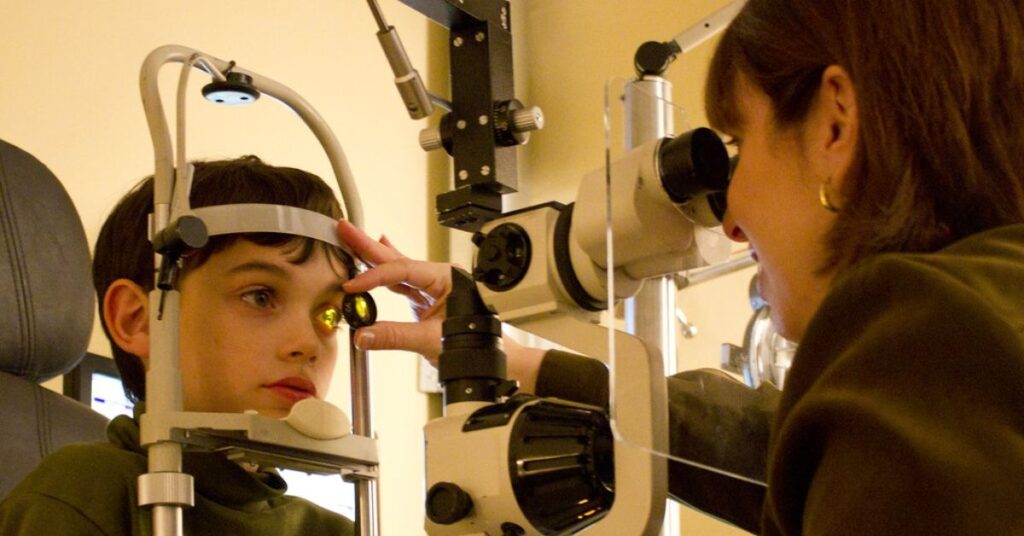hen it comes to eye care, many people are unsure whether they should visit an optometrist or an ophthalmologist. Both professionals play essential roles in maintaining eye health, but they have different levels of training, responsibilities, and areas of expertise. Understanding the difference can help you choose the right specialist for your vision needs—whether it’s a routine eye exam, glasses, or treatment for a serious eye condition.
Who Is an Optometrist?
An optometrist is a healthcare professional who is trained to examine, diagnose, and treat vision problems and certain eye conditions. They hold a Doctor of Optometry (OD) degree and typically:
- Perform eye exams and vision tests
- Prescribe glasses and contact lenses
- Diagnose common eye issues like dry eyes or infections
- Provide basic treatments and manage some chronic eye diseases like glaucoma
- Refer patients to ophthalmologists if surgical care is needed
Optometrists are often your first point of contact for general eye care.
Who Is an Ophthalmologist?
An ophthalmologist is a medical doctor (MD or DO) who specializes in eye and vision care, including performing eye surgery. Their training includes medical school, a residency in ophthalmology, and sometimes additional subspecialty training. They:
- Diagnose and treat all eye diseases
- Perform surgeries like cataract removal, LASIK, and retinal repairs
- Prescribe medication and corrective lenses
- Provide advanced care for serious conditions like macular degeneration or diabetic retinopathy
They offer more in-depth care and are often referred by optometrists when needed.
Education and Training Differences
Optometrists complete four years of optometry school after undergraduate studies. They are trained in eye exams, vision correction, and basic treatments.
Ophthalmologists undergo medical school and several years of residency in eye care. Their training covers all aspects of eye anatomy, diseases, and surgery, making them qualified for complex medical and surgical interventions.
When to See an Optometrist
Visit an optometrist if you need:
- A routine eye check-up
- A prescription for glasses or contact lenses
- Help with eye strain, allergies, or dry eyes
- Monitoring for common eye conditions
They are ideal for everyday vision care and maintenance.
When to See an Ophthalmologist
You should see an ophthalmologist if:
- You need eye surgery
- You have a serious or worsening eye condition
- You are experiencing vision loss, floaters, or flashes
- You have been referred by your optometrist for further treatment
They are the go-to experts for medical and surgical eye care.
Working Together for Your Eye Health
Optometrists and ophthalmologists often work as a team. An optometrist might detect a problem and refer you to an ophthalmologist for specialized care. After surgery or advanced treatment, the optometrist may continue routine follow-up care.
Conclusion
Both optometrists and ophthalmologists are crucial in eye care, but they serve different purposes. Optometrists focus on routine exams and vision correction, while ophthalmologists handle advanced treatment and surgery. Knowing the difference ensures you get the right care when you need it. For general eye needs, start with an optometrist. For more complex issues, consult an ophthalmologist.
